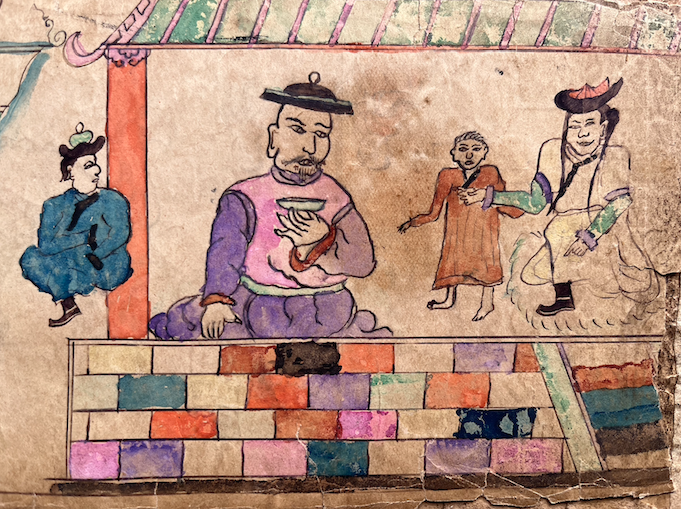
Wednesday May 11
University of Warsaw
A Heap of Leaves or Fellow Travellers. Kinship and Family Life in the Buddhist Texts for the Buryat Laity (XIX early XX century)
Much has been written about the role of ‘shamanism’ in making of Mongol kinship. This paper aims to explore the role of Buddhism in constructing kinship, which received less scholarly attention. Particularly, I am interested in how the Buddhist ‘anti-family’ orientation was propagated in Buryat society, which had assigned great social importance to kinship networks. I have studied the didactic texts that Buryat lamas compiled for the laity in the 19th and the beginning of the 20th century. As I will demonstrate, lamas were arguing against the very strong rationale of kinship present among the laity and were trying to persuade people of a greater truth: kinship, like other worldly ties, are temporary and unreal attachments hindering people on the path towards nirvana. Nonetheless, lamas also argued that despite the impermanent character of kinship, these bonds were to be arranged in a proper way to avoid multiplying sins. Lamas did not offer a ready model or a special Buddhist ideal of the family organisation, and like in other regional contexts, the Buddhist ethics was adapted to the existing cultural traditions.
Ayur Zhanaev dr, University of Warsaw. Currently a Visiting Researcher at the Mongolia and Inner Asia Studies Unit with the research project The Ideas of Social Order as Reflected in Didactic Buddhist Literature of the Buryat-Mongols (18th to early 20th century), funded by the Robert H. N. Ho Family Foundation Program in Buddhist Studies.
Picture: A fragment of an illustrated manuscript of the Molon Toyin’s tale from the collection of Prof. Caroline Humphrey.
